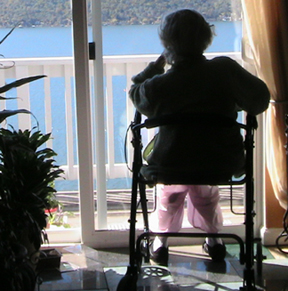 If you’re more Chinese (or Asian) than you are American, you know exactly what I mean when I say it’s expected the kids will take care of their parents when they are older. Confucius called it filial obligation, even the Chinese government passed it as law. As an immigrant to the U.S. myself, I always knew that some day I would have to take care of my parents. It was part of our normal discussion. My conversations with my mom would inevitably include something like:
If you’re more Chinese (or Asian) than you are American, you know exactly what I mean when I say it’s expected the kids will take care of their parents when they are older. Confucius called it filial obligation, even the Chinese government passed it as law. As an immigrant to the U.S. myself, I always knew that some day I would have to take care of my parents. It was part of our normal discussion. My conversations with my mom would inevitably include something like:
Mom: Make sure you marry a Chinese girl, so when I’m old and come to live with you I’ll be able to talk to her.
Me: Uh, ok. What if she doesn’t speak any Chinese?
Mom: It doesn’t matter, we’ll understand each other, as long as she’s Chinese.
[Eventually I failed on both counts – my spouse is neither Chinese nor a girl]
If you know a bit about Chinese culture, you also know historically the youngest daughter was the one who stayed behind, didn’t get married and took care of the aging parents. I think in the back of her mind my younger sister always felt she had that role to play even though she got married and had kids, so she stuck by my dad’s side when he got sick with cancer. But it was always known that I would be the caretaker for my mom, when her cancer came back from remission.
The question of which child cares for the elderly parent was the recent topic of a NY Times article, which tackled the widely held belief in American culture that parents treat and love their kids equally (there’s obviously no such thing in Chinese culture). According to the Cornell University study (quoted by NY Times), American parents do really have a favorite child, even if they tell their kids otherwise. It’s their favorite child, who they typically want to be their caretaker in later life, even if their favorite isn’t the best suited (due to things like bankruptcy or drug abuse).
So I guess it should be no surprise to anyone, my younger sister was always my dad’s favorite, and I was always my mom’s. That much was obvious to anyone who knew our family. My parents didn’t hide it the way American families do. In another interesting aspect of the Cornell study, they found that the adult children in the study quite often incorrectly identified the favorite child in the family. Most often they’d say it was themselves, incorrectly. I guess that goes to show you, in American culture, there’s at least a facade of loving all the children equally. Being in America I think my parents at least attempted to do that, even if they didn’t succeed. Do your Asian parents play favorites? Is it obvious, or do they tell you all, they treat you all the same (I hesitate to use the word love as we all know Asians don’t use the word love and I love yous are for white people).







